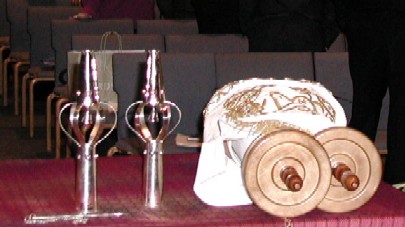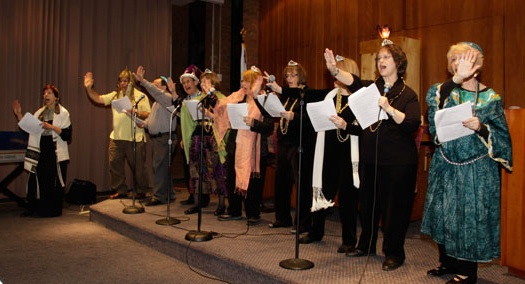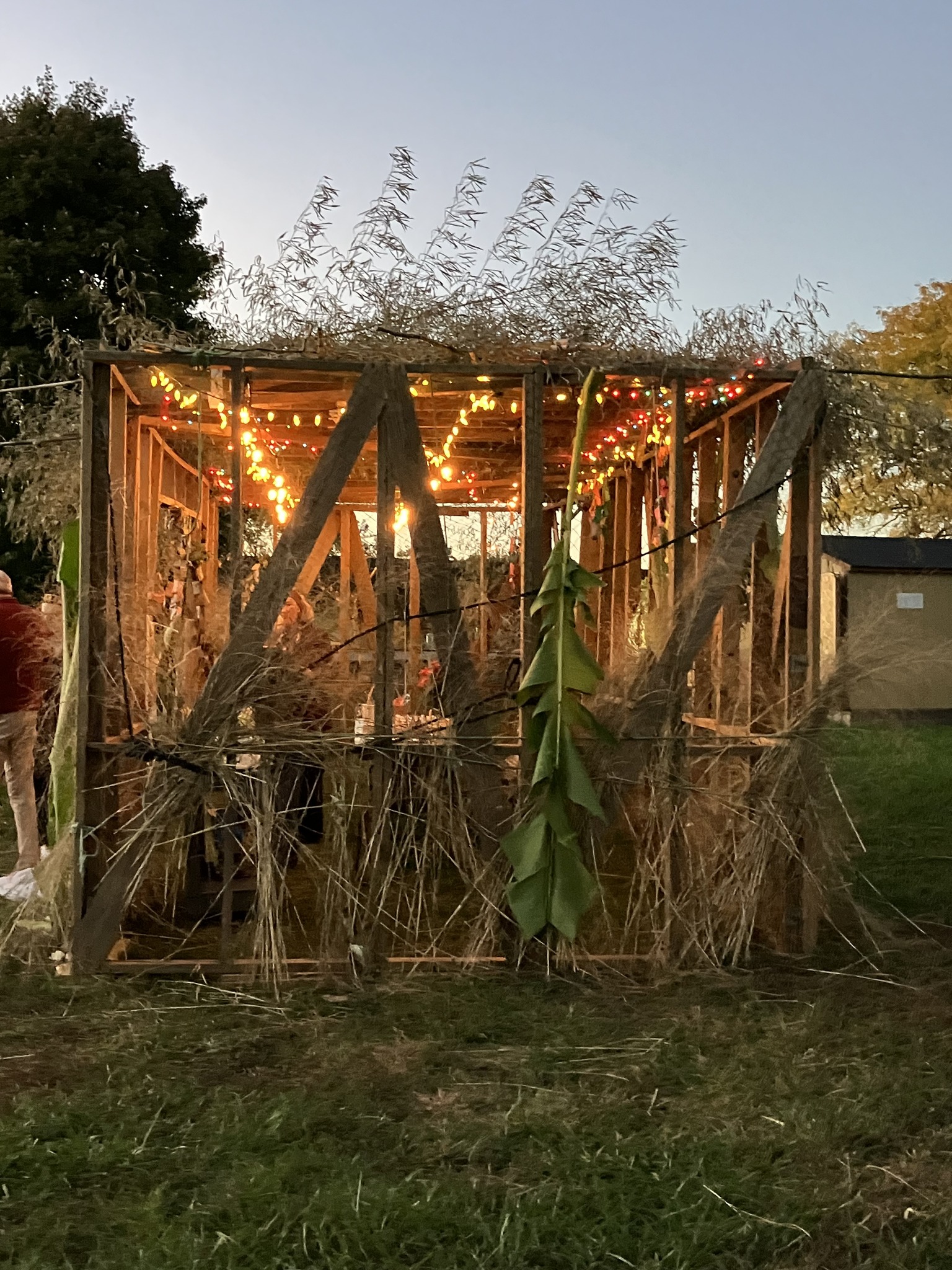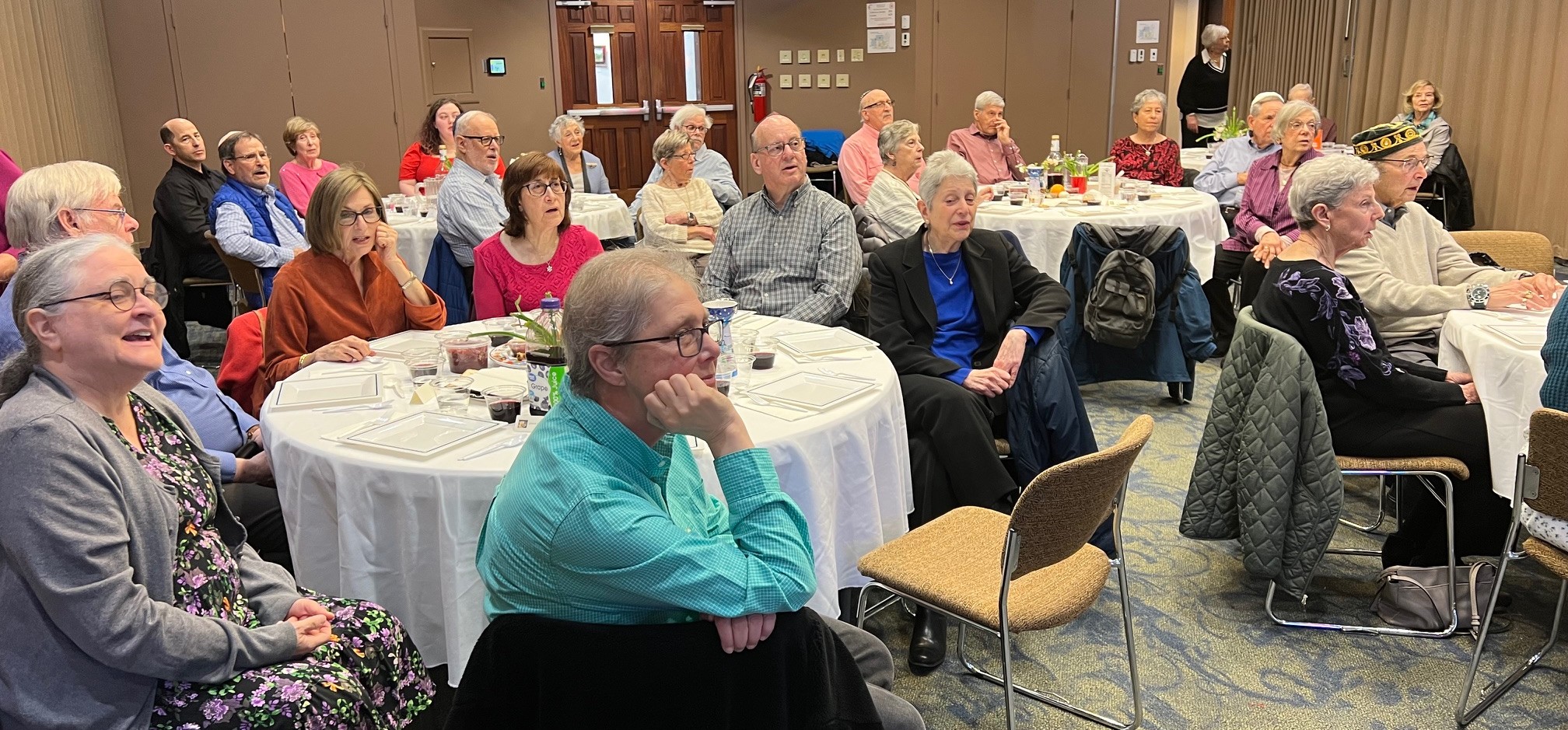
High Holy Days are a time for reflection, introspection, prayer, and re-connection. Join us in experiencing the spirituality of the High Holy Days. We observe the service of Selichot at the start of Rosh Hashanah, before the beginning of the ten day period of penitence and introspection ending on the fast day of Yom Kippur. In our services, we use the two-volume set of Mishkan HaNefesh, the text of which reflects our interest in gender-sensitive language. Membership in Bet Aviv includes admission to High Holy Day services. As a gesture of hospitality, you may invite your parents, children and grandchildren to attend at no additional cost. Please see the Schedule of Services for a list of dates, times, and locations of services.
Last year, a trio of congregants called us to worship with the sound of the shofar. A special highlight of our Yom Kippur service is hearing the haunting melody of the Kol Nidre played by a professional cellist.
As a reminder, please bring your Mishkan HaNefesh prayer books with you to services, as we have only a limited number for guests. If you need to purchase the two volume Mishkan HaNefesh prayer books, then call the Bet Aviv office at 410-992-9994 prior to the High Holy Days. Also, please remember to stop at security for check-in prior to entering the sanctuary so that we can be informed of your presence.
If you are not a member of the congregation and not yet ready to make that commitment, you may purchase a seat at our High Holiday services to join us. If you decide to join the congregation shortly after the holidays have ended, we will apply the ticket costs toward your membership dues! Please contact us for details.
We look forward to sharing a wonderful High Holy Days together!
The Union for Reform Judaism suggests, where space allows, that those members in good standing at Union congregations who will be in another community during the High Holy Days be welcomed to worship. If you will be traveling during the holidays and wish to attend services at a URJ member synagogue, download and fill out the “High Holiday Courtesy Seating Request.” Then forward this form to the Bet Aviv office where it will be completed and mailed to your destination congregation.
High Holiday Letter and Schedule of Services
Click the link below to read the High Holiday Letter for 2024 that includes the list of services.
Bet Aviv and Kol Nefesh Guest Attendance Requests
Bet Aviv and Kol Nefesh allow members in good standing to bring guests to High Holiday services if space allows. Please review our High Holiday Ticket Policy to learn the the important details about guests. If you have guests who will attend Bet Aviv or Kol Nefesh High Holiday services, then please notify us by filling out our on-line High Holiday Guest Attendance form.
High Holiday Music
Click the link below to access the High Holiday PrayList for 5786 with many of the melodies we use at High Holidays.
High Holiday Donations
Click the links below to make online High Holiday Donations. You may also print the forms below and sent it to the Bet Aviv office with a check.
Read the Bet Aviv High Holy Days Appeal Letter
Break-the-Fast Information
Kol Nefesh is sponsoring a Break-the-Fast pot-luck immediately following Neilah at approximately 6:00 pm in Room 100. Click here to sign up.
Download Rabbi’s High Holiday Sermons from 2023
URJ High Holy Days Resources


 Sukkot, a Hebrew word meaning “booths” or “huts,” refers to the Jewish festival of giving thanks for the fall harvest, as well as the commemoration of the forty years of Jewish wandering in the desert after Sinai. Sukkot is celebrated five days after Yom Kippur on the 15th of Tishrei and is marked by several distinct traditions. One tradition, which takes the commandment to “dwell in booths” literally, is to build a sukkah, a booth or hut. A sukkah is often erected by Jews during this festival, and it is common practice for some to eat and even live in these temporary dwellings during Sukkot.
Sukkot, a Hebrew word meaning “booths” or “huts,” refers to the Jewish festival of giving thanks for the fall harvest, as well as the commemoration of the forty years of Jewish wandering in the desert after Sinai. Sukkot is celebrated five days after Yom Kippur on the 15th of Tishrei and is marked by several distinct traditions. One tradition, which takes the commandment to “dwell in booths” literally, is to build a sukkah, a booth or hut. A sukkah is often erected by Jews during this festival, and it is common practice for some to eat and even live in these temporary dwellings during Sukkot.
